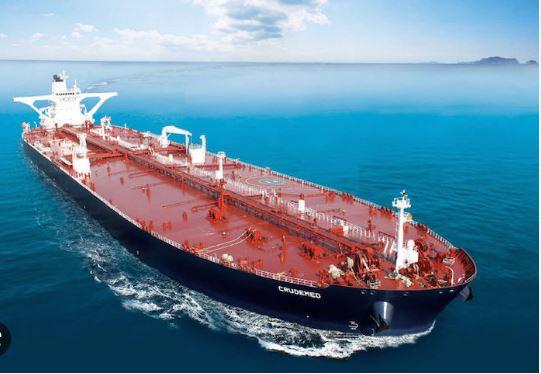EU embargo on Russian oil shipments, price cap mechanism come into force

On Monday, the EU’s embargo on Russian oil shipped by sea comes into effect, under which Europe will officially stop importing seaborne Russian oil and will try to introduce an oil price cap at $60 per barrel for countries not party to the deal.
Separately, the European Union, the G7 and Australia will enact a ban on shipping and insurance of Russian oil that costs more than $60 or at least 5% below the market price.
In its turn, Russia is not planning to export its crude under the terms envisaged by the oil price cap, while experts do not rule out that oil prices will exceed $100.
Back in June, the EU agreed its sixth package of sanctions against Russia, including a ban on Russian oil imports by sea from December 5 and refined oil products from February 5. The Russian oil price cap was announced by G7 foreign ministers in September. Bulgaria will be able to receive seaborne oil and petroleum products from Russia until the end of 2024, and Croatia will buy Russian gas oil through late 2023.
However, Bulgaria has been exempted and is permitted to import Russian crude by sea.
 Latest news
Latest news Latest news
Latest newsGreece Plans to Exclude Turkiye from Future Defense Contracts
20.Feb.2026
U.S.-Based Mars Launches Major Investment Project in Kazakhstan
20.Feb.2026
Parliamentary Elections 2026 in Armenia as a Geopolitical Referendum
20.Feb.2026
Russia and Ukraine Fail to Reach Agreement in Geneva
19.Feb.2026
The South Caucasus in U.S. Foreign Policy: Implications of High-Level Visits for Russian and Chinese Regional Aspirations
18.Feb.2026
Ukraine Imposes Personal Sanctions on Belarusian President Alexander Lukashenko
18.Feb.2026
72% Against the Authorities: Economic Dissatisfaction Hits Record Levels in Turkiye
17.Feb.2026
Bulgaria Strengthens Defense: First American Stryker Vehicles Delivered
17.Feb.2026
Moscow Criticizes Plans to Build a U.S.-Backed Nuclear Power Plant in Armenia
16.Feb.2026
Washington expects Tbilisi to strengthen ties amid regional changes
15.Feb.2026

 28 Feb 2026
28 Feb 2026









